
Years ago, on Film Comment’s website, I introduced a column called Streaming Pile—one that, as its tagline stated, was “dedicated, though not exclusively, to the seedier side of VOD.” Basically, it was a roundup of dark shockers and thrillers to watch online, centered on specific themes. I only got four articles in, covering the subjects of British horror/sexploitation master Pete Walker, Psycho Chicks, Rare Anthologies, and High School (Black and) Blues, but now, nearly a decade later, people somehow still ask about it. Taking that into account, as well as the trajectory of streaming’s evolution—the volume of titles rapidly increasing and the publicity for them declining just as fast—I’ve decided to revive it here.
This first return edition will be used to address some of the best genre titles released in the U.S. throughout 2023 that Bloodvine initially left out. We managed to cover many of our favorites (birth/rebirth, Brooklyn 45, Enys Men, Influencer, Jethica, The Origin of Evil, Skinamarink, Smoking Causes Coughing, and When Evil Lurks) from a year crammed perhaps even fuller than usual with franchise entries (some unexpectedly strong, like Saw X, Evil Dead Rise, and Insidious: The Red Door; and others exceedingly weak, like Scream VI, Meg 2: The Trench, and The Exorcist: Believer). Then there were the high-profile letdowns 65, The Boogeyman, Knock at the Cabin, M3GAN, The Pope’s Exorcist, Renfield, Talk to Me, and Thanksgiving. The eight films included here are smaller and worthier of attention, and all just happen to use enclosed and/or remote locations or internalized headspaces to stunning effect—which may or may not be a coincidence in this scaled-down COVID era.
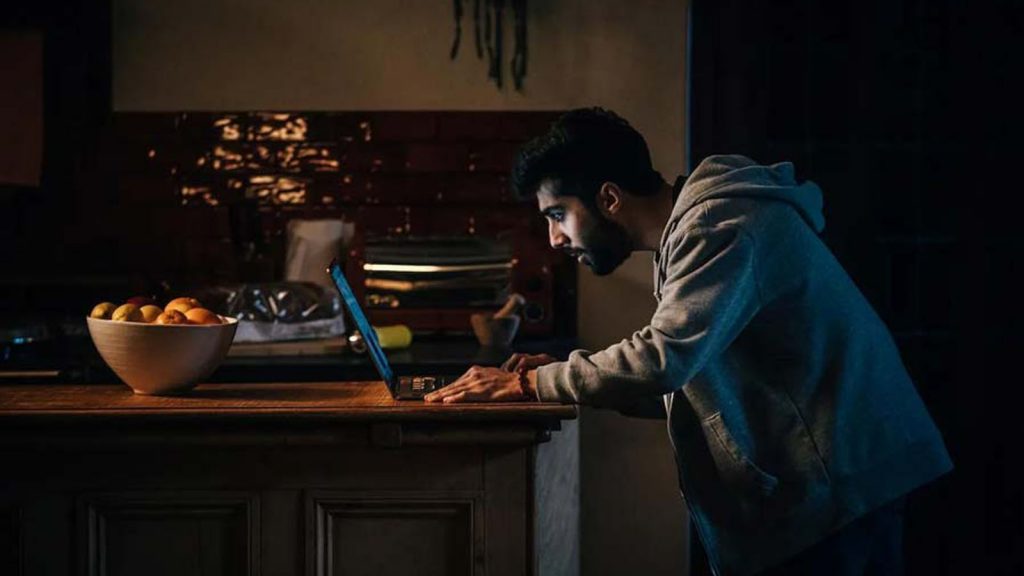
In today’s Digital Age, one little rumor or case of mistaken identity can quickly snowball into something life-destroying. Philip Barantini’s Accused shows unlucky Harri (Chaneil Kular) targeted for being in the wrong place (London’s fictional Central Junction train station) at the wrong time (around when an explosion takes place)—and, of course, for looking like a “terrorist” with his dark skin and beard. While we don’t spend enough time with Harri to know him intimately, we immediately see that he’s a decent guy, innocently going to dogsit for his parents, which makes every step of his character’s takedown hit extra hard, from the way the misunderstanding begins to the speed at which damaging lies about him spread virally before his eyes on-screen to the witch hunt that ensues as two fired-up MAGA-like assholes locate him and make it their mission to serve “justice.” More than a social-media danger warning, Accused is also a home-invasion thriller, with most of the film forcing Harri to fend for himself at his parents’ country dwelling—the excruciating restaurant-kitchen tension brilliantly generated in Barantini’s previous film Boiling Point (2021) transposed to a remote house by a developing master of suspense. It’s a shame that some of the unrelenting anxiety is diffused by Tubi’s insistence on only offering their Originals with ads.
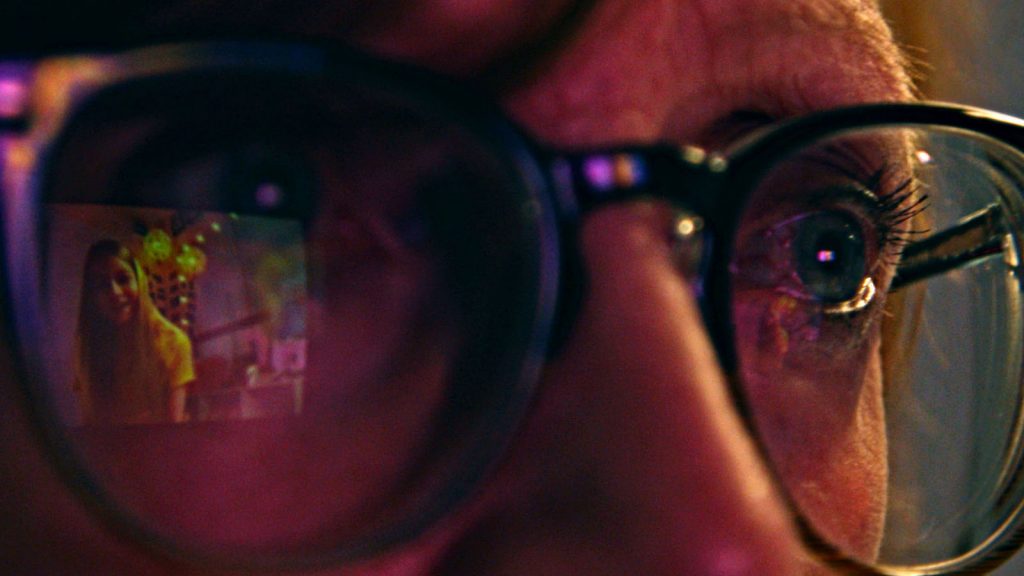
As the threat of AI’s rapid development accelerates to ever more terrifying extremes, a film like The Artifice Girl is of the essence. It presents the dangers and potential benefits nerdily yet smartly and simply—techspeak made palatable for the novice. Relative newcomer Franklin Ritch serves as the film’s writer, director, editor, and star, and he performs each role with quiet panache. His character, Gareth, is initially presented as an online child-predator suspect who is brought in for questioning by two special agents (Sinda Nichols and David Girard), but, as we quickly learn, there’s a whole lot more going on. Set within just a few locations, and featuring only a handful of human beings (including Lance Henriksen in the final of the film’s three segments) and one virtual one (the 9-year-old “Cherry”), The Artifice Girl is a philosophically rich, modern sci-fi outing that creates a whirlwind of hopes and fears with words and connotations, and confirms that you don’t need a surplus of action—or a budget—to hold people’s attention. Convincing performances all around help to convey a stark intelligence and depth of emotion, something that AI itself couldn’t possibly generate. At least for now…

Humans perpetually make strange choices, and a major life decision by the central French couple in The Beasts could fall under the category of “ill-advised relocations.” It’s hard to imagine why the hell anyone in their right mind would voluntarily live in the small Spanish village that Antoine and Olga (Denis Ménochet and Marina Foïs) choose to make their home as farmers. It’s not that it’s ugly—the land is quite beautiful—but the people surrounding them are mostly repugnant. Antoine and Olga’s closest neighbors, two boorish brothers, especially go out of their way to make the outsiders feel unwelcome. The locals’ behavior is unsettling because it’s so credible (the story is based on true events), and as it escalates from juvenile to genuinely threatening, we know that we must prepare for the very worst to happen. And when it eventually does, and the film feels like it’s veering off track emotionally, the couple’s grown daughter (Marie Colomb) arrives to provide a much-needed voice of reason. Antoine is initially the family rock, but Olga is slowly given the space to grow, and in a film of impeccable performances, Foïs in particular does some of her finest work. The Beasts shakes your soul, and it’s one of the all-around finest movies of the year in any genre.

When longtime couple Chloe and Jack (Kimberly Laferriere and Rogan Christopher) go on vacation to Miami, the tension is so thick you would never guess that the getaway is actually their honeymoon. They are clearly on different pages: Chloe, seemingly the grounded one, is ready to start a family, while Jack, grumpy and jealous, isn’t yet willing to grow up. Do Not Disturb starts as something of a toxic-relationship drama before traveling to wildly unpredictable places after the unhappy newlyweds party with an older, swinging couple they met in the hotel lobby and then embark on their own impulsive drug trips as a way to let loose and reconnect. Hazy recollections lead to lost time and then to something much more grotesque, all within the confines of their dreary hotel room. Alternately trippy, sexy, and memorably nauseating, John Ainslie’s darkly funny sophomore feature is kept on track by the standout, highly invested performance by Laferriere. It’s best to go into this one as blindly as possible, but for a horror movie with a tagline like “love is all-consuming,” you can use your imagination to anticipate the depraved developments the narrative just might have in store.

After 2019’s The Assistant, writer/director Kitty Green and actress Julia Garner reteam for another quietly gut-wrenching portrait of the everyday traumas that women too often face in the so-called safety of the workplace. Both film’s premises are pulled from terrifying real-life stories, and, like The Beasts, The Royal Hotel also has a documentary counterpart. In Green’s narrative version, the two protagonists have been adapted from Finnish girls into Americans (Garner’s Hanna and Jessica Henwick’s Liv), who have fled their only-hinted-at troubles at home to backpack around Australia. Out of cash, they accept highly undesirable bartending jobs at the titular dump in the remote outback. It’s a scenario that couldn’t possibly lead anywhere wholesome, and, as expected, their customers (and boss, played by the great Hugo Weaving) are mostly unpredictable brutes. Threats of rape and violence loom large, and even in the rare friendly stretches, there isn’t a moment when we stop fearing for the safety of these two contrasting friends. Hanna, the observer, calmly navigates a precarious situation—much like Garner’s character does in The Assistant—while Liv is the more outgoing and sometimes maddeningly reckless one. Potent and expertly crafted, The Royal Hotel is deserving of a wider embrace.

Virus and pandemic films—and zombie flicks by extension—run on a continuous loop of exhausting and reinventing themselves, but they never go out of style. COVID-specific ones, though, haven’t been so lucky thus far. Aside from 2020’s Host and 2022’s The Harbinger, little stood out until Sick came along. It’s solid as a COVID film, cleverly twisting the basics—your home is a safe zone, or is it?; a mask protects you, or does it?—and even introducing a drinking game with Fauci’s name as the prompt for imbibing, but this one will likely endure because beneath it all, there lives a good old-fashioned slasher film, co-written by the creator of Scream. It’s April 2020, and two college friends, Parker and Miri (Gideon Adlon and Beth Million), quarantine together at Parker’s parents’ mega lake house after school shuts down. But it’s not just the two of them for long: Parker’s ex, DJ (Dylan Sprayberry), shows up, failing to achieve the reconciliation he seeks (far from it, actually), and the masked, black-hooded figure we see in the tense opening kill scene targets the girls next. The film is lean and mean, and Adlon and Million come off as likable, real, and, ultimately, totally badass. And as in most slashers, it matters little that the killer reveal is silly. Somewhat restricted by the effects of COVID itself, Sick never received a theatrical release and was dropped on Peacock early this year despite its clear crowd-pleasing potential.

With just one line, Jorma Tommila gives one of the most commanding performances of the year. Known as The Quiet One, Tommila’s perfectly rugged ex-soldier Aatami Korpi is just minding his own business toward the end of WWII’s Lapland War, roaming the stunning, remote Finnish wilderness with his dog and horse, searching for gold. No sooner does he finally happen upon a large share than a Nazi platoon cruising the area on their tank disrupts his solitude and attempts to steal his treasure. But it’s not as simple as it may seem. This is one dude you don’t want to fuck with, and watching people try results in some purely satisfying cinema, bursting with truly inventive, cartoonish scenes of violence and gore. Ignore the comparisons to John Wick—which unaccountably seems to be the go-to revenge-flick reference point these days, as if it were the first ferocious payback thriller ever made. Jalmari Helander, best known as the director of the oddball modern holiday-viewing perennial Rare Exports: A Christmas Tale (2010), forges his own path. Gorgeous in every frame, this tale of retribution with a Western tinge and a side helping of female empowerment also offers all the pleasure that comes with seeing Nazis killed off in the most brutal ways. And it’s a spoiler of the best kind to report that the dog lives.

Another year, another super-tight thriller by an exceptional filmmaker unceremoniously dumped onto Hulu. Damián Szifron’s long-overdue follow-up to his wonderfully twisted anthology film Wild Tales (2014) ended up on the streaming service mere months after its practically invisible theatrical release (and like Damien Power’s stellar 2022 Hulu Original No Exit, I didn’t know the film even existed until randomly scrolling through Hulu’s lineup). Szifron’s English-language debut, To Catch a Killer, opens on New Year’s Eve in a not-very-Baltimore-like Baltimore (probably because the film was shot in Montreal), where a sniper ruins the celebration by gunning down 29 rooftop partiers. Eleanor (Shailene Woodley), a rookie cop on the scene, is eventually recruited to help track down the assassin. Against the odds, a too-babyish Woodley manages to look sullen and suitably worn, pulling off the role of a young woman whose checkered past gets in the way of her deserved career growth. And she holds her own with the ever-reliable Ben Mendelsohn, as the FBI special agent who recognizes Eleanor’s promise. With its urban setting and expansive manhunt, the film may be less strictly confined than other titles discussed here, yet it feels intimate because it’s so focused on the inner turmoil of a young woman battling to move forward in life. Witnessing Eleanor face off against herself and a dangerous killer is gripping throughout every twist and turn of Szifron and Jonathan Wakeham’s script. 🩸

is a writer, editor, and horror programmer based in New York. She is the editor of Bloodvine and her writing has appeared in publications such as The New York Times, Film Comment, and Rolling Stone.
Evil father figures account for some of the most memorable characters in genre films and beyond. And, well, if you happen to have a shitty dad...
BY LAURA KERN | December 31, 2024
The influence of Mary Shelley’s Frankenstein on motion pictures can be traced back to the early years of cinema, and reanimating the dead has since grown into one of horror’s most beloved staples.
BY COLIN FLEMING | OCTOBER 15, 2024
The word alone induces twinges of dread and disgust: “influencer,” along with its evil siblings “vlogger,” “social media personality,” “YouTuber,” and “TikTok sensation,” have made our depreciating society even grimmer.
BY LAURA KERN | May 25, 2023
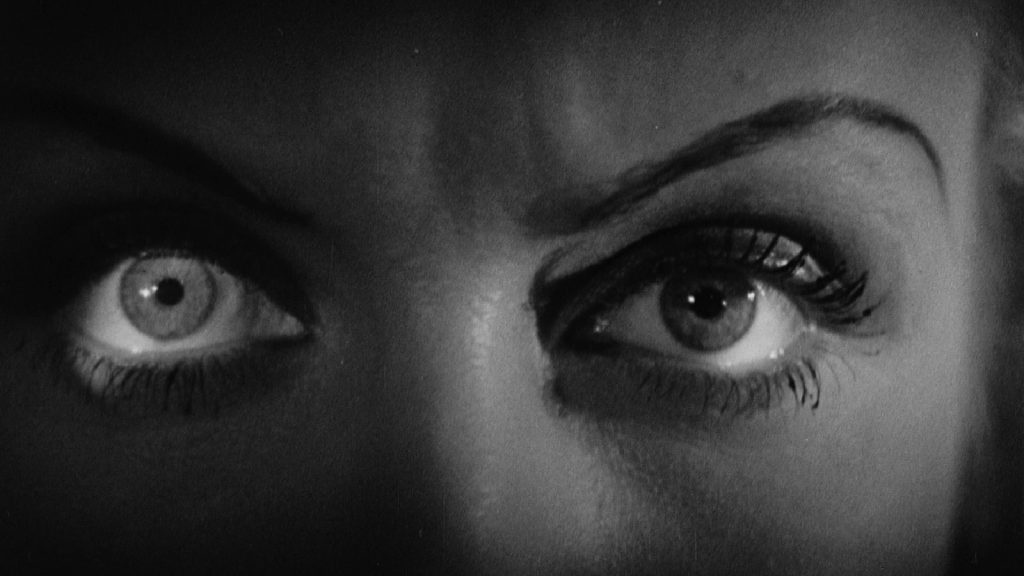
This pre-Code offering packs a lot of story into its typically brisk running time, with several plot threads weaving together a (not always successful) tapestry of spooky and criminal doings.
READ MORE >
BY ANN OLSSON | Month 00, 2021
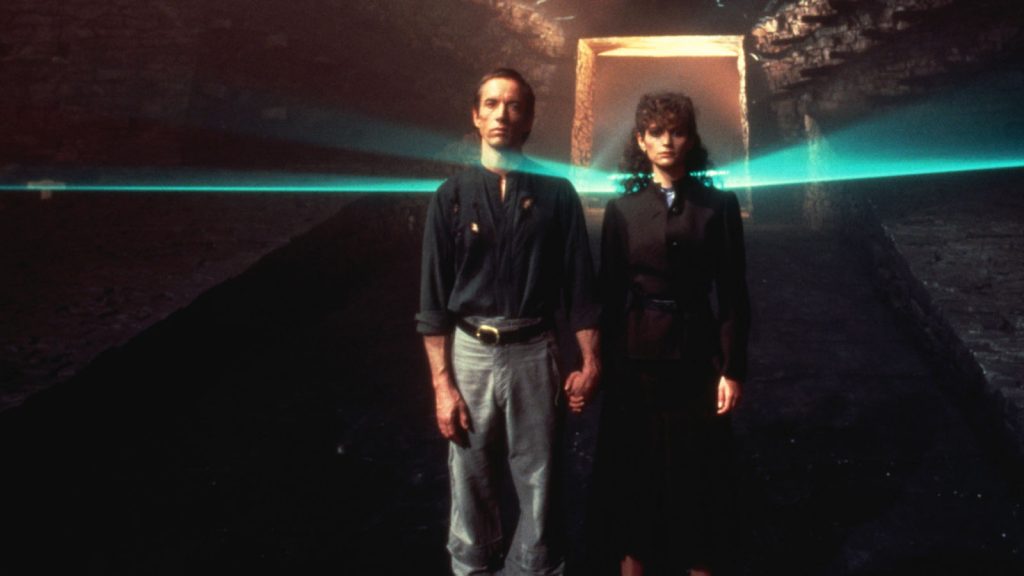
In what could be the fastest-resulting rape revenge movie, a drunken lout brutally forces himself on Ida, the young woman who doesn't return his affections, during a party over Labor Day.
READ MORE >
BY LAURA KERN | Month 00, 2021
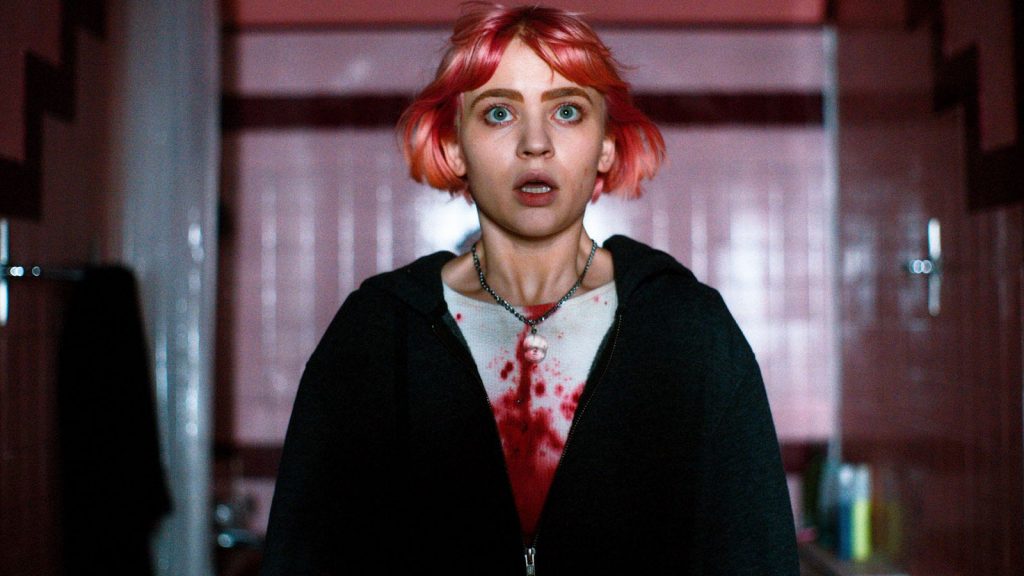
Beast is a lot of movies in one package - fractured fairy tale, belated-coming-of-age story, psychological drama, regional horror film - but above all it's a calling card for its leading lady, Jessie Buckley.
READ MORE >
BY LAURA KERN | Month 00, 2021